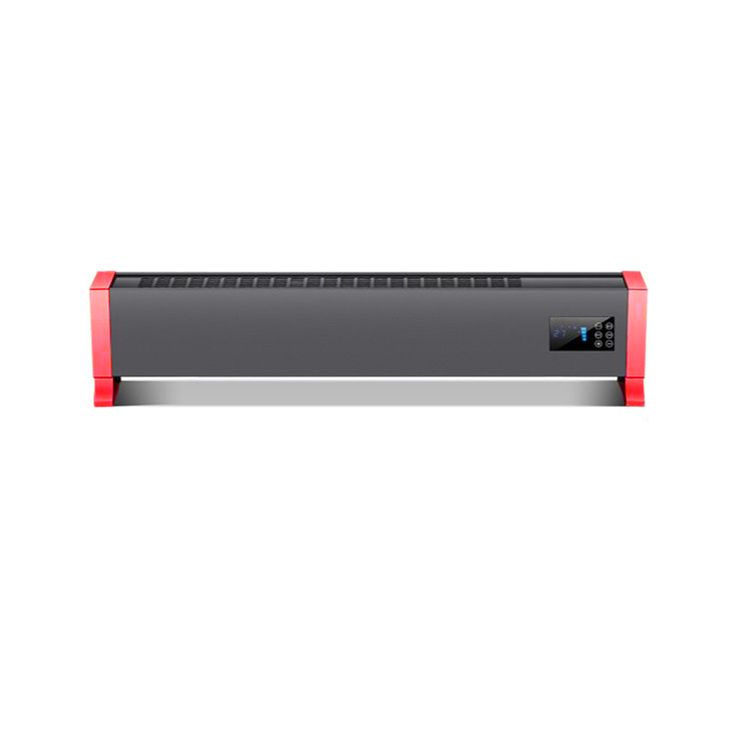
As temperatures drop and the need for indoor warmth rises, finding the right heating solution becomes a top priority for many homeowners. Electric baseboard heaters have long been a trusted choice for those seeking an efficient, cost-effective, and low-maintenance way to keep their homes comfortable during colder months.
In this blog, we’ll explore the ins and outs of electric baseboard heaters, including how they work, their benefits, and tips for optimizing their use.
What Are Electric Baseboard Heaters?
Electric baseboard heaters are a type of heating system that provides warmth through convection. These slim, rectangular units are typically installed along the base of a wall, often beneath windows to counteract heat loss. They use electric resistance to generate heat, which rises naturally to warm the room.
How Do Electric Baseboard Heaters Work?
-
Electricity and Heating Element:
Electric baseboard heaters contain a heating element that warms up when electricity flows through it. -
Convection Process:
As the heating element warms the air near the baseboard, the heated air rises. Cooler air is drawn into the heater to repeat the cycle, creating consistent and even warmth throughout the room. -
Individual Room Control:
Many units come with built-in thermostats or can be paired with a wall-mounted thermostat, allowing for precise temperature control in individual rooms.
Benefits of Electric Baseboard Heaters
-
Energy Efficiency:
Electric baseboard heaters are highly efficient because they convert nearly all the electricity they use into heat. With individual room control, you can heat only the spaces you’re using, avoiding unnecessary energy consumption. -
Easy Installation:
Unlike central heating systems, electric baseboard heaters are relatively easy to install. They don’t require ductwork or extensive renovations, making them a cost-effective option for retrofitting older homes or supplementing an existing heating system. -
Quiet Operation:
These heaters operate silently, making them ideal for bedrooms, offices, or other quiet spaces. -
Low Maintenance:
Electric baseboard heaters have no moving parts, which means they require minimal maintenance compared to other heating systems. Occasional cleaning to remove dust and debris is usually all that’s needed. -
Zone Heating:
The ability to heat individual rooms independently allows for customized comfort and energy savings, especially in homes where some areas are used more frequently than others.
Tips for Optimizing Electric Baseboard Heaters
-
Choose the Right Size:
The heater’s size should match the room’s dimensions to ensure efficient heating. A general rule of thumb is 10 watts of power per square foot of space. -
Use Programmable Thermostats:
A programmable thermostat allows you to set heating schedules, reducing energy consumption when the room is unoccupied. -
Keep Them Clean:
Dust and debris can accumulate in the heater, reducing its efficiency. Regular cleaning ensures optimal performance. -
Clear Space Around the Heater:
Avoid placing furniture, curtains, or other objects directly in front of the baseboard heater. Obstructions can block airflow and reduce efficiency. -
Seal Windows and Doors:
To maximize the effectiveness of electric baseboard heaters, ensure your home is well-insulated. Sealing drafts around windows and doors will prevent heat loss.
Are Electric Baseboard Heaters Right for You?
Electric baseboard heaters are an excellent option for:
- Supplemental Heating: Perfect for rooms that need extra warmth, such as basements, sunrooms, or home offices.
- Homes Without Central Heating: For homes without ductwork, baseboard heaters provide a simple and effective heating solution.
- Zoned Heating Needs: Ideal for those who want precise temperature control in individual rooms.
However, if you’re heating a large space or a whole house in a region with high electricity costs, it’s worth comparing electric baseboard heaters to other heating options like heat pumps or gas furnaces.
Conclusion
Electric baseboard heaters are a time-tested heating solution that offers reliability, efficiency, and simplicity. Whether you’re looking to heat a single room or enhance your existing system, these heaters provide an affordable and effective way to stay cozy during the colder months.
If you’re considering adding or upgrading electric baseboard heaters in your home, take the time to choose the right size and optimize their use for maximum comfort and energy savings.
What’s your experience with electric baseboard heaters? Share your thoughts or tips in the comments below!





Leave a Reply